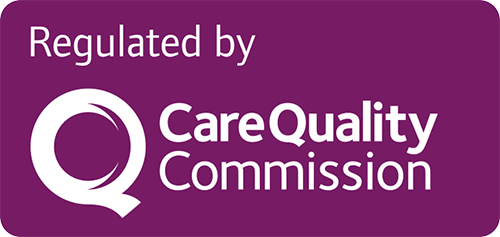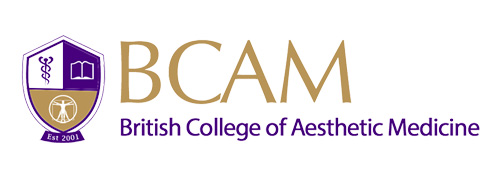We are seeing an increasing number of patients coming to consult with Dr Sach Mohan, founder and lead cosmetic physician at Revere Clinics, seeking help with complications following cosmetic injectable treatments carried out elsewhere, especially by lay practitioners.
Aesthetic Medicine is ‘Medical’, and there is a good reason for it, explains Dr Mohan. He welcomes the recent decision by the Royal Society of Medicine (RSM) to establish an academic home in the form of a new scientific medical, surgical, and dental forum for Aesthetic Medicine and Surgery to promote best practices, improve patient outcomes, and recognise Aesthetic Medicine as a medical specialty for the first time.
Dr Mohan speaks to many patients who have been severely affected by inexperienced, poorly trained, non-medical providers carrying out inappropriate treatments, using low-grade products, or substandard injection techniques who lack the underlying medical education and skills to manage adverse complications. The lack of proper regulation in the UK allows individuals to carry out treatments with no training standards and little to no medical oversight from a prescribing clinician.
Some patients recount being ‘ghosted’ when reporting a problem after treatment and struggle to know where to turn to; physically and emotionally traumatised by their experience, they desperately seek reassurance and restitution of their appearance.
One such patient is Katie; she agreed to share her experience and personal journey spanning two years, which has been traumatic and life-altering.
Katie’s Story
Katie had an 8-point facelift procedure with Lumifil Max dermal filler at a clinic in Essex. Sadly, the outcome resulted in granuloma formation or hard lumps within the tissue that caused continual bouts of facial swelling to the point that she became unrecognisable to friends and family. The swelling was painful and caused redness, and her face would appear lumpy and distorted.
To address the complication and reduce the inflammation, Katie was prescribed steroids, on and off, for two years. However, this did not resolve the underlying cause, and eventually, the clinic absolved themselves of any further responsibility because they had exhausted their knowledge.
During this time, Katie also visited her local hospital half a dozen times, desperately seeking assistance when her face swelled. Sadly, they could not offer a solution. The NHS does not train healthcare professionals or stock appropriate medication in A&E departments for complication management related to private aesthetic medical treatments. Further consultations with three private plastic surgeons also drew a blank because it was a non-surgical treatment complication.
“I’ve been around in circles, and no one seems to have helped me”, she explained to Dr Mohan.
When asked about the emotional toll her experience had wrought, Katie tearfully described how she felt humiliated and found herself hiding from others and their judgement. Her GP prescribed antidepressants because she felt so low, and she struggled to leave the house. Bereft, Katie even cancelled her wedding due to the uncertainty of a ‘flare up’ that could ruin her big day.
Dissolving Dermal Filler
Katie desperately wanted the dermal filler gone for good, to find a resolution to stop her face ballooning so she could move on with her life again and rebook her wedding. She finally found the help she needed at Revere Clinics.
Granuloma formation is an inflammatory, non-allergic, foreign body reaction triggered by the amount of dermal filler injected, impurities within the product, or by its physical properties or characteristics. Lumps can appear and migrate or move to other areas of the face (depending on the original placement) up to two years after a dermal filler treatment following the immune system reaction. They are more common with cheaper, generic dermal filler products that are poorly regulated and lack rigorous scientific clinical safety trials or when a product has been incorrectly injected.
The formation of granulomas from hyaluronic acid-based dermal fillers is described in clinical study publications:
“Hyaluronic acids normally present in the human body have a half-life of 1-2 days. However, hyaluronic acids used as fillers are modified to add artificial cross-linking, which allows them to maintain their volume for more than six months in the human body. Clinically, foreign body granulomas caused by hyaluronic acids mainly appear as cystic granulomas. A process of encapsulation occurs that prevents the absorption of injected material into the surrounding tissues, resulting in the development of a sterile abscess.”
To identify the underlying lumps of encapsulated dermal filler product, Dr Mohan used cutting-edge ultrasound scanning to map the affected areas of Katie’s face – the deposits were quite significant in size (denoting poor placement) and widespread.
Dr Mohan dissolved the dermal filler with hyaluronidase during two treatment sessions over two months to reduce the inflammation and resolve the product accumulations. Hyaluronidase, a prescribed medicine, is an enzyme that breaks down hyaluronic acid so the body can metabolise it naturally. Dissolving the product lumps that had formed in Katie’s face halted her immune system reaction. She is now making renewed plans for her wedding, and her fiancé is thrilled to see his bride-to-be smiling again. We wish them every happiness.
Whilst the current regulatory situation persists, there are no restrictions on the types of people who can perform cosmetic injectable treatments; hence, you will encounter clinics run by medical professionals and lay practitioners in most towns and cities.
Dr Mohan asserts that Medical Aesthetics is a medical specialty. When considering cosmetic treatments, you should seek out an appropriately trained medical professional who has the skills to take a medical history, consult you appropriately for treatment, assess and understand any contraindications, perform sterile procedures using appropriate techniques, use clinically proven products sourced from regulated supply chains, and who can prescribe medicines to manage immediate or delayed complications should they occur.
If you have had a bad experience with another clinic and need help to dissolve poorly placed dermal fillers to restore your appearance, please book a consultation with Dr Sach Mohan to discuss your concerns.












